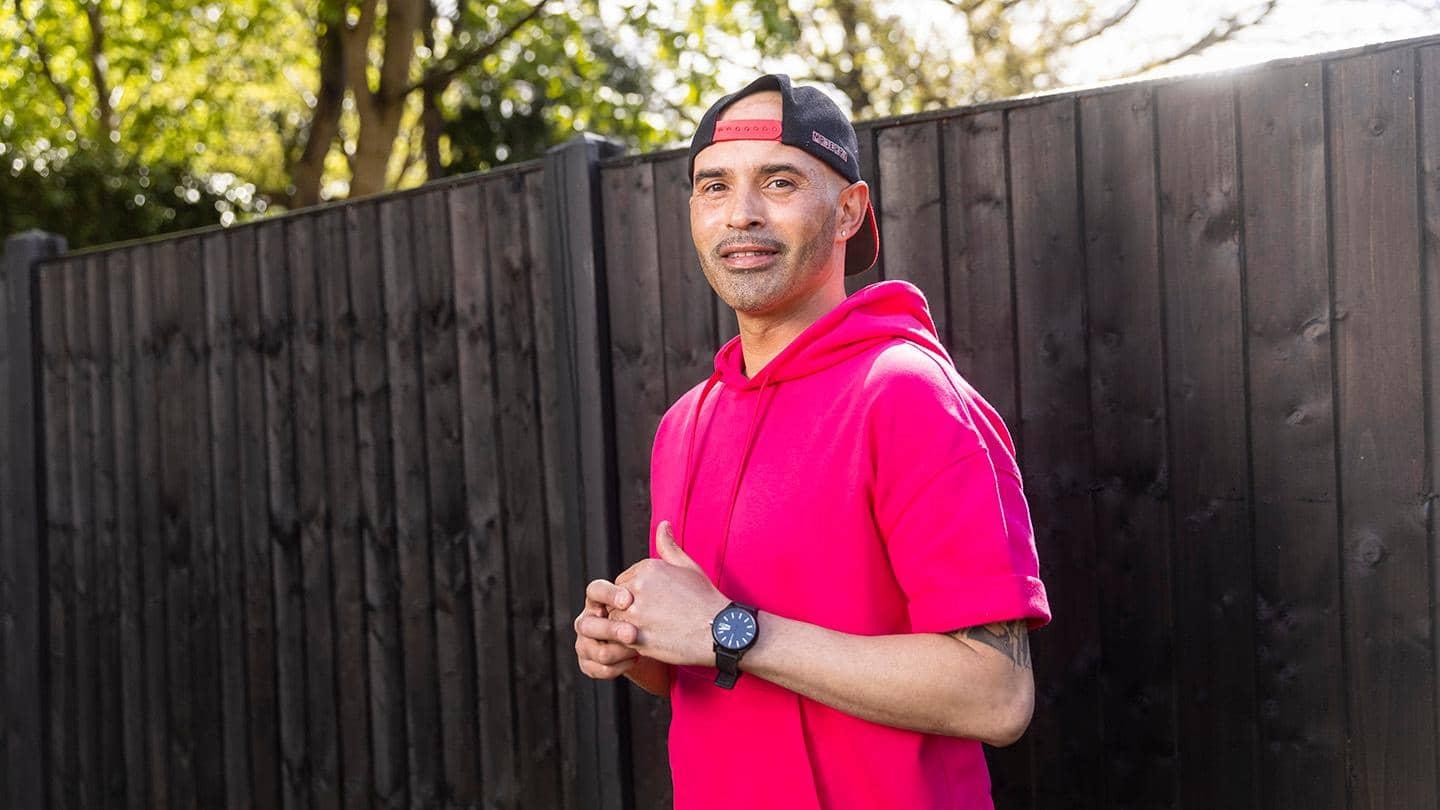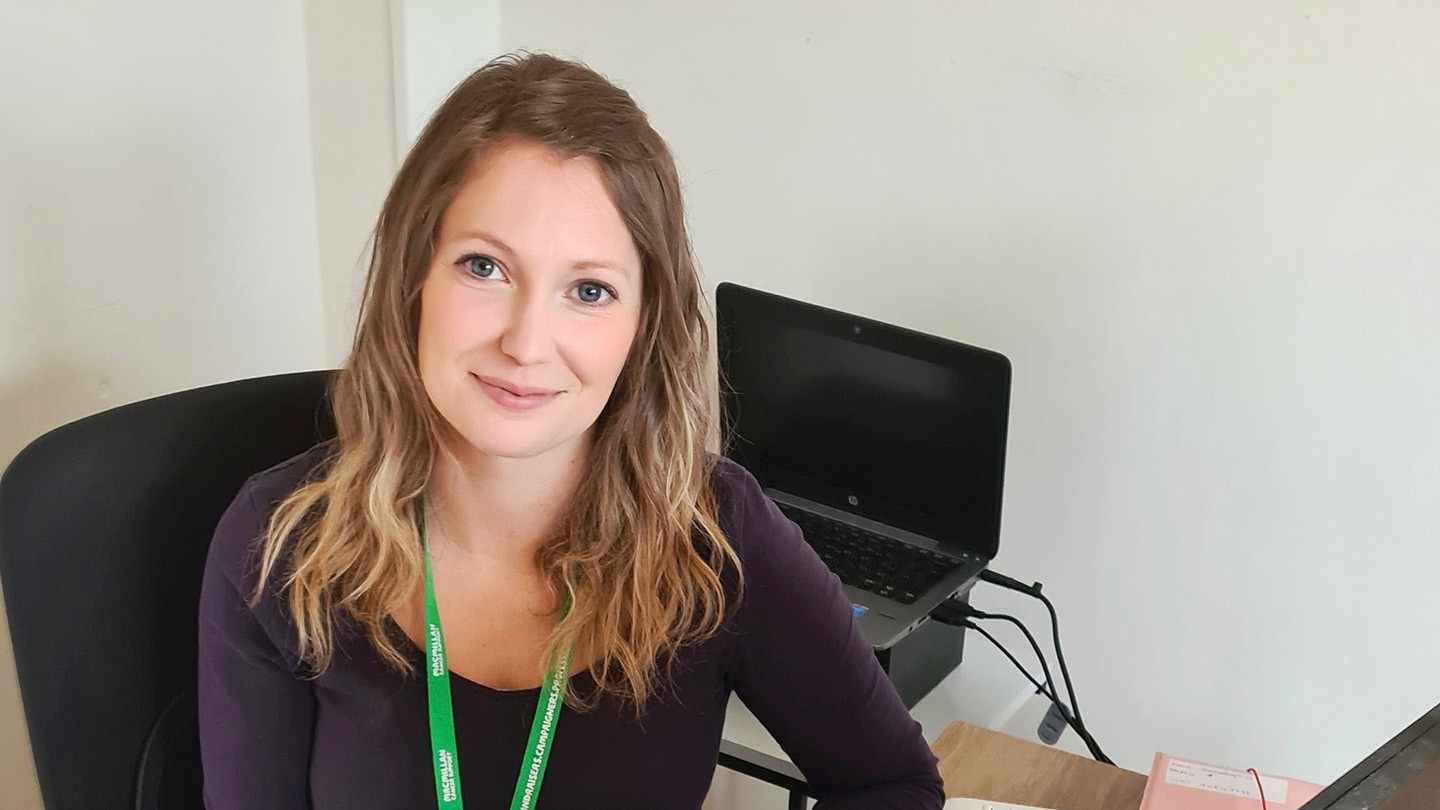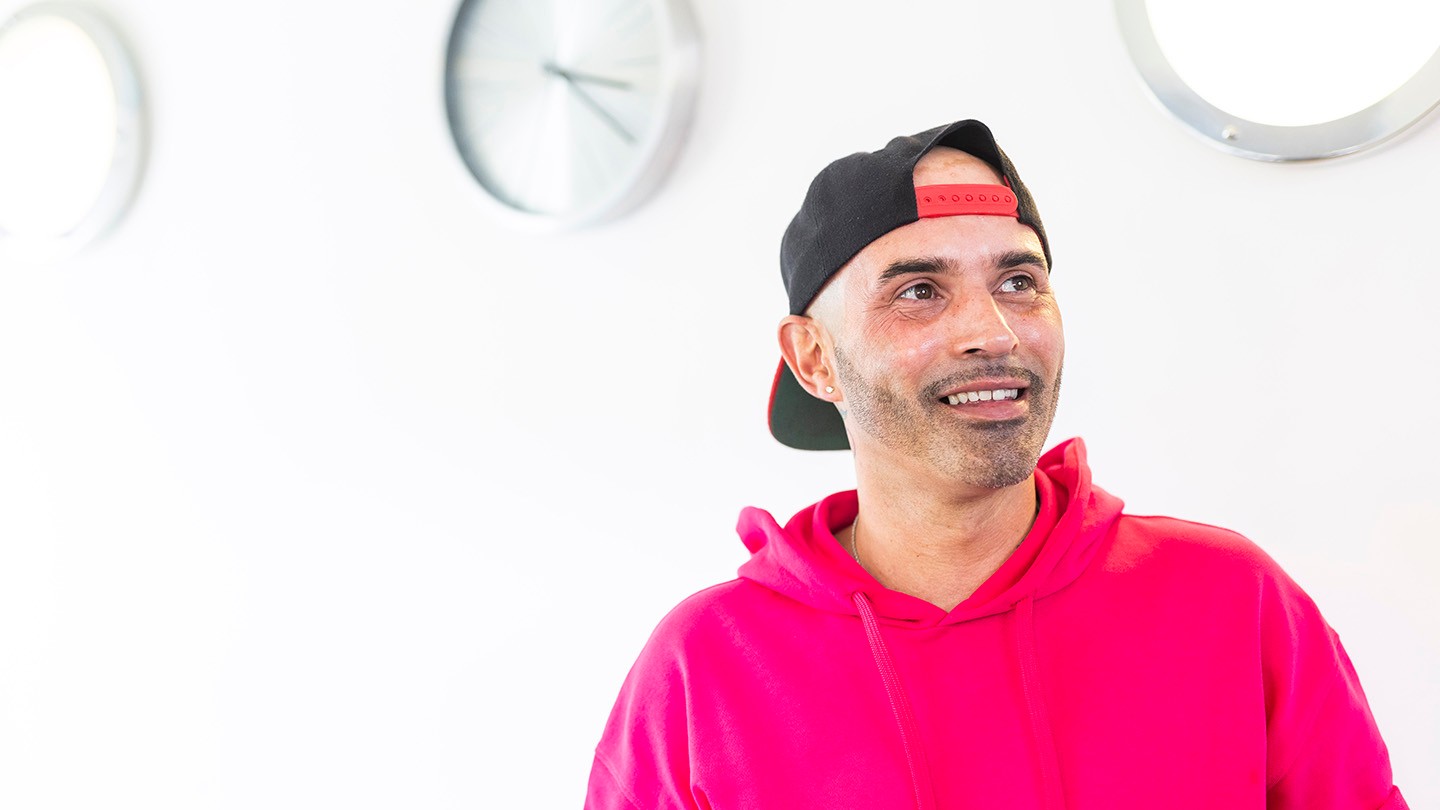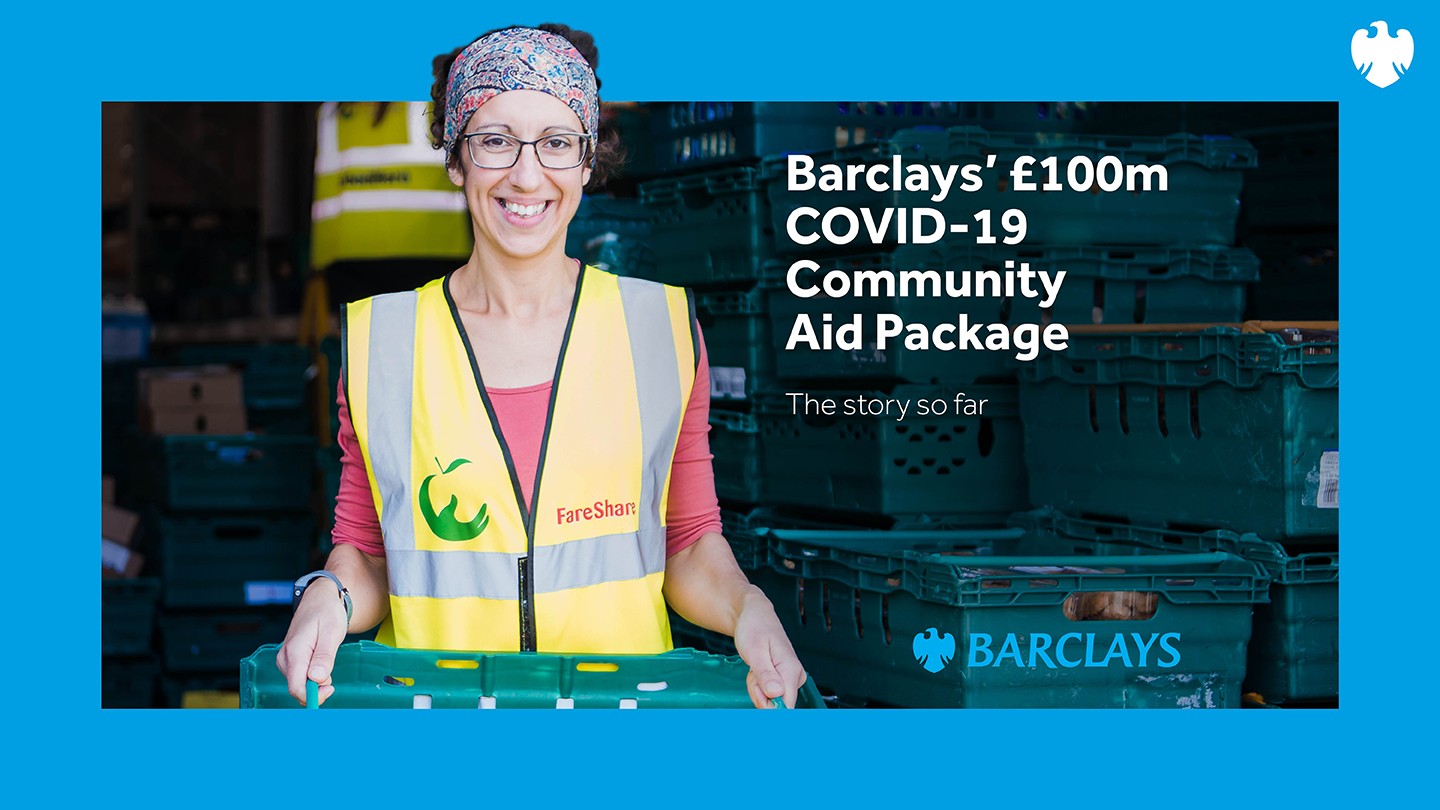
Macmillan Cancer Support: “We do whatever it takes to help people with cancer”
Jerry Dawson was diagnosed with cancer in December 2020. He shares the emotional and financial difficulties he faced going through treatment during the pandemic – and how he was helped “just in the nick of time” by a grant from Macmillan Cancer Support, a UK charity supported by Barclays.
In late 2020, in the midst of the COVID-19 pandemic, Jerry Dawson was diagnosed with testicular cancer.
On top of the trauma of the diagnosis, Dawson found himself isolated from friends and family as he shielded at home in Sandwell, UK. “It was really emotionally draining, facing my diagnosis during this time,” he says, “especially having to go through my surgery, treatment and cancer journey for the most part alone. Without the specialist cancer nurses on hand to reassure me, I don’t know how I would have coped.”
But the worry and isolation weren’t the only things the care manager and former professional dancer had to cope with. As the UK entered its third lockdown, Dawson was about to undergo chemotherapy treatment and found himself facing financial worries on top of everything else. “I’d had a cut in my wages from work and I was worried about how I would pay my bills,” he explains.
“Luckily,” says Dawson, “and in the nick of time, I was awarded a grant by Macmillan Cancer Support.” This one-off payment from the charity “really helped free my mind of those worries and helped me to focus on the chemotherapy journey ahead”.
Macmillan is one of hundreds of organisations around the world backed by Barclays’ £100m COVID-19 Community Aid Package, which aims to bring critical support to those who have been hardest hit by the pandemic.
According to the charity, four in five people living with cancer become more financially worse off following a diagnosis – and the pandemic has made the situation worse, with many people losing their jobs, facing a pay cut or being unable to work for health reasons.
Thanks to Barclays’ support, Macmillan has been able to help 497 people living with cancer to access urgent funds and recruit 10 additional Welfare Rights Advisers, who help people affected by cancer to navigate the benefits and grants available to them. And in a six-month period, Macmillan’s Advisers have unlocked over £8m in benefits and answered more than 3,000 calls.
"Just one call can help someone who might be struggling”
Macmillan has also expanded its practical and emotional support services. Macmillan’s Support Line, which offers a listening ear to people with cancer and their loved ones, recruited seven extra Cancer Information and Support Specialists. In six months, these specialists handled 13,000 more interactions than the charity would usually be able to deliver.
“At Macmillan, we do whatever it takes to support people living with cancer,” says Rebecca Stead, a Service Knowledge Specialist based in West Yorkshire, who worked on the Macmillan Support Line for over four years. “From the moment of diagnosis, we’re here to give those with cancer tools and guidance to help them take back control. This help is totally focused on each individual person, so that they receive the support that’s best for them.”
But, she says, “the pandemic has created devastating disruption across cancer services, leaving many people struggling to get the support they need”. With help from Barclays, Stead’s team was able to quickly transition to remote working and continue making an impact during a difficult period for those who need it.
“Just one call can really unlock that help for someone who might be isolated and struggling,” says Stead. She recalls one of the many essential connections she made during the pandemic, with someone who was facing social isolation while shielding, and struggling to access food or practical support.
“We were able to identify a number of avenues of help,” she says, “including linking them to a local volunteer scheme for food delivery, referring them to our befriending telephone service, arranging a call around benefits and grants with our Welfare Rights team and offering additional emotional support through the Support Line.”
Macmillan’s Online Community offers another avenue of support. Providing peer-to-peer support to more than 90,000 people with cancer, the community helps members to connect with others living with similar diagnoses, who can understand from person experience how they might feel. The site also provides answers to common questions, says Stead, covering topics “from COVID-19 and cancer treatment, to dealing with anxiety and financial problems”.
“I have gained so much from other forum members,” says one Online Community user. “When someone says, ‘That’s exactly how I feel too’, you know you’ve made a connection and that makes it all worthwhile.”

The pandemic has created devastating disruption across cancer services, leaving many people struggling to get the support they need.
Service Knowledge Specialist at Macmillan
For Dawson, Macmillan’s support has helped ease some of the pressures he was facing – and has inspired him to give back to others going through a similar experience.
With the cancer now in remission, he wants to start a support group in his local community “to encourage conversations with people dealing with diagnosis and living with cancer”.
“Cancer has had an impact throughout my life,” he continues. “I lost my big brother to childhood cancer when we were both very young, and I’m very passionate about supporting others.
“Macmillan was there for me in my time of need. They had advice and support, which was a great source of comfort. I urge men of all ages to check themselves on a regular basis – and please don’t be afraid to seek medical help if you’re worried.”

Macmillan was there for me in my time of need. They had advice and support, which was a great source of comfort.
Barclays’ £100m COVID-19 Community Aid Package: the story so far

To date, Barclays has supported more than 290 charities around the world delivering vital COVID-19 relief. Read about the positive difference these charity partnerships are making to communities impacted by the pandemic in a newly published COVID-19 Community Aid Package Impact Report.